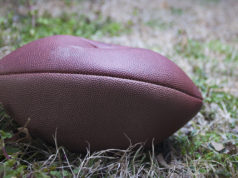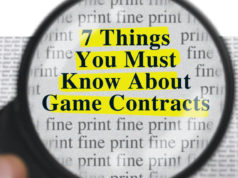Consider this situation: There was a serious player injury that occurred during a game you officiated. An ambulance had to transport the player to the hospital for care. When you are paid for the game, you are asked to sign a waiver. Should you? What happens if the school is sued for negligence?
Officials should not sign post-injury waivers when they work a game in which a player is severely injured. Quite frankly, officials should not sign post-injury waivers under any circumstance.
Interestingly, the point could be moot: A post-injury waiver might not be valid. Basic contract law could invalidate the waiver. A contract requires both sides to make a commitment. The official has already entered into a contract to work a game and is entitled to his or her pay without making any additional commitments. If a court should determine that the school exerted leverage to get the official to sign a post-injury waiver, then the waiver may not hold water as the official would have made a new commitment (waiving his claims) for the pay he was already due (meaning the school made no new commitment). On the other hand, it is possible that the official was not compelled to sign, and the waiver could stand.
Even if the waiver is valid, its effect is not clear. One would have to read the waiver. However, it is difficult to see how any waiver that an official signs with a school would prevent an injured player from suing the official. The official’s concern when a player is injured should be with her own defense and liability, not with signing documents that may protect the school.
Ultimately, the official should consult with his or her attorney and insurance representative before signing waivers. Officials can ask their association, their league or the state governing body to help them get their pay if the school is actually using pay as leverage for the waiver, and officials can go to small claims court as a last resort to receive payment.
The wise official needs to take some steps prior to worrying about the waiver, though. The proper thing for officials to do after a game in which there was an injury is to document the game. The official needs to do this for the most practical of reasons: The official may not remember the game if and when they are sued. An injured person may not bring their suit for a year or more depending on the state where the game is played.
An official does not need to do anything fancy to document the game. The official just needs to record information such as the date, the teams, the game time, and the official’s partners. Then the official needs to note unusual occurrences and the acts they took prior to the unusual occurrences, such as a field inspection, breaking up a fight, enforcing a coaching box or restricted area rule, any penalties assessed when the unusual occurrence or injury occurred and whether the official had to take any steps after the unusual occurrence or injury occurred. T
he official’s documentation is a file report. An official should not send this report to the league or governing body unless required to. Officials should note that their interests tend to coincide with the league or governing body’s interest when it comes to ejections and unsportsmanlike incidents. The league or governing body is essentially reinforcing the official’s acts with an administrative sanction, and courts tend to give the official’s acts great deference as courts do not wish to substitute their judgment for the official’s judgment on game calls. However, that’s not the case with injuries. Courts force leagues, governing bodies and officials to parcel out degrees of liability. Courts don’t give great deference to officials when it comes to injuries. Officials should not share their file reports unless mandated to.
Finally, it is not enough just to make file reports where you think there was a severe injury. Officials probably can detect the most severe of injuries, but officials can’t determine whether other injuries will be perceived as severe by students, parents and schools.
An official’s best solution to the problem of being sued for a severe injury that didn’t seem severe at the time is document all games. Some college and professional leagues mandate this, but it’s not a universal practice. An official may wish to think of this as an officiating resume with a notes column for unusual occurrences. Indeed, in some sports an officiating resume is required for selection to high level events, and for advanced certifications.
Ultimately, signing a waiver after an injury is a poor idea. However, it is a good practice to prepare for a lawsuit, and the best way to do that is to keep good file reports about the games you worked.
What's Your Call? Leave a Comment:
Note: This article is archival in nature. Rules, interpretations, mechanics, philosophies and other information may or may not be correct for the current year.
This article is the copyright of ©Referee Enterprises, Inc., and may not be republished in whole or in part online, in print or in any capacity without expressed written permission from Referee. The article is made available for educational use by individuals.
















